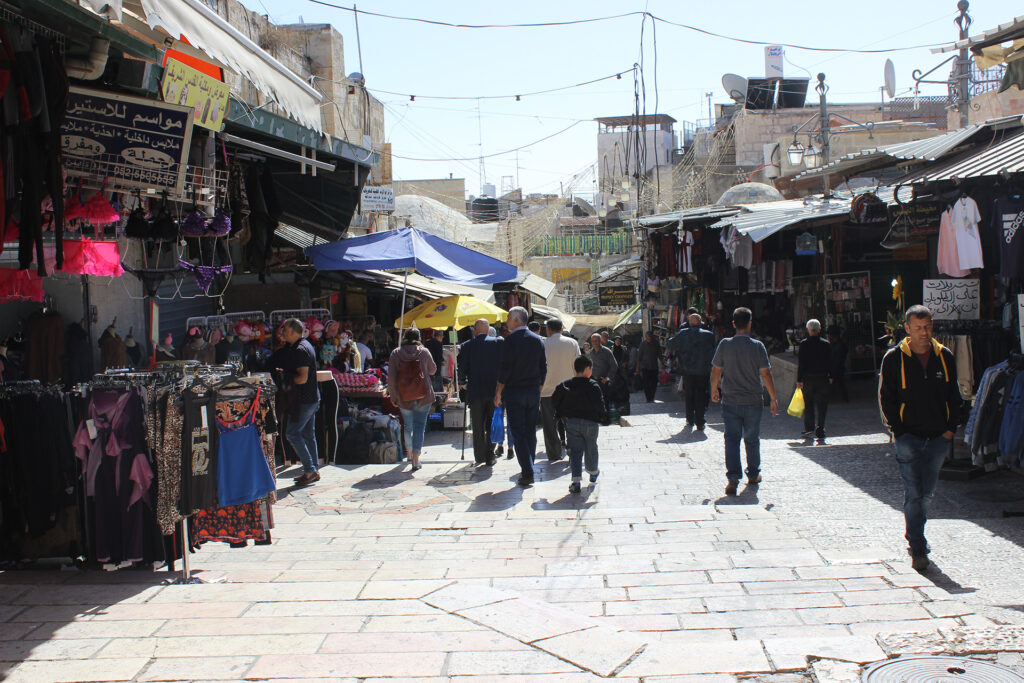Occupied Jerusalem- For the second time in a row, the people of Jerusalem renewed their announcement that Eid activities would be limited to religious rituals, away from manifestations of joy and joy, similar to the previous Eid al-Fitr, out of respect for the bleeding blood of the martyrs in the Gaza Strip, and the ongoing genocide against them since last October 7.
The Eid prayer in Al-Aqsa Mosque constitutes the most prominent rites and rituals of Jerusalemites on Eid al-Fitr and Eid al-Adha, as the mosque brings tens of thousands from Jerusalem and the occupied Palestinian interior to perform the prayer, which will be held this year at six o’clock and five minutes, according to the announcement of the Mufti of Palestine, Sheikh Muhammad Hussein.
Despite the importance of the Eid prayer in Al-Aqsa Mosque in particular, the mosque witnessed the lowest number of worshipers on Eid al-Fitr compared to the previous decade, as the numbers reached 60,000, which is half their number on Eid last year 2023.
An invitation to travel
The decline in the number of worshipers is due to the occupation deporting hundreds of people from Al-Aqsa Mosque, preventing Palestinians from the West Bank and Gaza Strip from entering it completely, and imposing severe restrictions on its doors, which were evident in iron and cement barriers and concentrations of police and “Border Guard” forces that abused worshipers through inspection or physical assault.
Commenting on this, the preacher of Al-Aqsa Mosque, Sheikh Ikrimah Sabri, via Al-Jazeera Net, called on the Palestinians who are able to reach Al-Aqsa Mosque to rebuild it and travel to it, stressing the necessity of limiting the Eid to religious rituals such as sacrifices, prayer, and family ties, without showiness and expressions of joy. He said, “We must feel with our brothers in Gaza and other Palestinian areas that have been exposed to calamities.”
As a form of solidarity with the Gaza Strip and protest against the genocide of its population, Jerusalemites refused to distribute sweets in rejoicing on Eid, and announced that hospitality in homes would be limited to coffee and dates, similar to what happened on the last Eid al-Fitr, as well as on Eid al-Fitr, which coincided with the aggression on Gaza in 2014. In which most of the worshipers wore black, and slogans spread such as “I am not a mourner, my soul is in Gaza,” “Gaza is resisting,” and “Gaza, your victory is our holiday.”
As a reminder of the suffering of the people of the Gaza Strip, and in memory of the martyrs of the ongoing aggression, Jerusalemites, with an individual initiative, distributed dates in Al-Aqsa Mosque accompanied by the names of hundreds of martyrs. Calls were also launched on the Day of Arafat to unify and intensify prayers from inside Al-Aqsa Mosque in support of Gaza.
Siege and poverty
Eid al-Adha is coming this year for Jerusalemites, and the security cordon around Jerusalem has increased, specifically at the main checkpoints near the apartheid wall, which separates hundreds of thousands of Jerusalemites from their surroundings and divides families on both sides of the wall, making it difficult to pray for relatives on this day.
The Qalandiya refugee camp checkpoint, north of Jerusalem, and the Shuafat refugee camp checkpoint, northeast of Jerusalem, in addition to the Jaba checkpoint, all further restrict the lives of Jerusalemites and lead to stifling traffic jams and wasting many hours of their daily lives.
Eid al-Adha is also coming, and unemployment rates have risen in Jerusalem, and many families have reached the brink of hunger, according to a joint report by the leftist Israeli “Ir Amim” and “Emek Shaveh” associations, which monitored the impact of the war on East Jerusalem and its residents.
75% below the poverty line
The report said that 75% of Jerusalemites were living below the poverty line before the outbreak of war, but the percentages increased after that because many Jerusalemites lost their jobs as a result of arbitrary dismissal by Israeli public and private institutions, or the closure of checkpoints around the city and restrictions on movement.
According to the same report, more than 450 Palestinian stores have closed their doors inside the Old City of Jerusalem since October 7, due to the unprecedented restriction of access to them, as 1,372 commercial establishments inside the Jerusalem Wall depend on religious occasions to increase their sales, which has worsened. Also clearly during Eid Al-Fitr and before Al-Adha, purchasing demand decreases.
In support of the Jerusalemite economy ahead of Eid al-Adha, the Al-Aqsa Association in the occupied Palestinian interior organized the “Jerusalem Week” initiative, which was launched last Saturday to revive commercial activity, and dozens of buses ran from the villages and cities of the interior to Jerusalem and Al-Aqsa Mosque.

